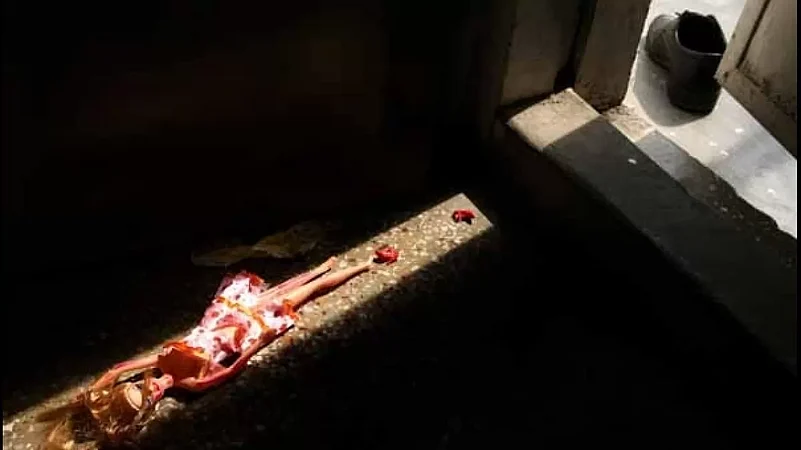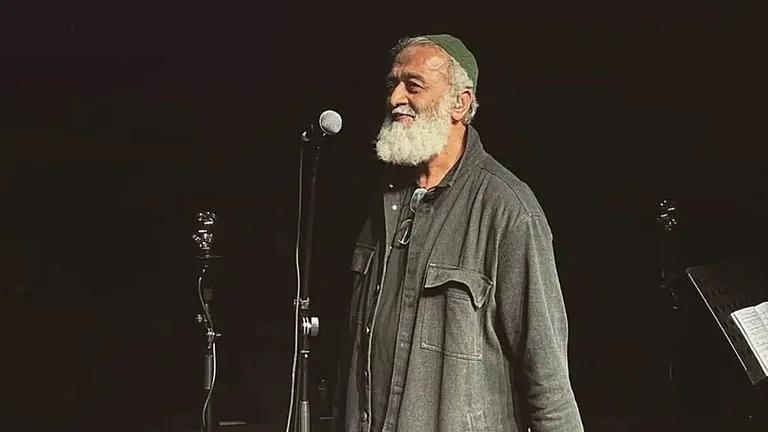In the past six years, the Delhi Commission for Women (DCW) has received nearly one lakh cases of abuse against women. Yet, to date, Swati Maliwal, the chief of DCW, has not received any response from any official from the central government to take cognisance of women's safety which is constantly under threat in the national capital. Despite writing several letters to the Union Ministry, Maliwal's requests to hold meetings for a "better and stricter system" have only been met with zero acknowledgement. And Maliwal feels that the entire system of the judiciary must be held accountable for Delhi being called the 'rape capital'.
“As of today, if you visit any police station in the city or in the country, you will find the offices functioning at half their sanctioned strength or even lesser than that. And on top of that, the police force is mostly used for VIP protection. So, the question remains, who looks after the protection and safety of people, especially in a city, where the crime rate against women does not seem to plummet?” says Swati Maliwal while speaking to Outlook.
Maliwal’s statement comes at a time when Delhi marks 10 years of the horrific Nirbhaya case. On the night of December 16, 2012, a young Jyoti Singh was beaten, gang raped and tortured in a running bus while returning home in Dwarka. She received serious injuries to her abdomen, intestines and genitals due to the assault, and doctors confirmed that the damage indicated that a blunt object (suspected to be an iron rod) may have been used for penetration. Days later, she succumbed to her injury in a hospital in Singapore triggering mass protests and questioning the safety of women and girls.
Protests and public pressure, both domestic and international, forced the Indian government to take action. A high-level committee, the Verma Committee, led by the former Chief of Justice of India, Justice JS Verma, was formed. The key recommendations were to widen the definition of “rape” to include non-penetrative sex, create new offences for acts such as acid attacks and sexual harassment, and increase penalties for those convicted of rape. These recommendations were all introduced into the Indian Penal Code (IPC) through the Criminal Law Amendment Act of 2013.
However, a decade later, on the eve of the 10th anniversary of the incident, Nirbhaya’s mother Asha Devi said that “nothing has changed” for the women of the national capital.
Legal fallacies
“There is always the need for better laws, but there is a stronger need to implement the same and make them effective. And that is so because there is a lot of lackadaisical attitude ruling the police force and hence, it is leading to a situation that is presently there in the city currently,” says Maliwal. “Strengthening of the police force, forensic as well as lower courts is also very important because unless there is certainty and strictness of punishment following crimes against women, not much will change.”
Kavita Krishnan, a renowned feminist activist and author, tells Outlook that the modification of the rape laws was mere “populist measures” as several recommendations made by the Verma Committee were left untouched irking feminist thinkers. “The committee had recommended the criminalization of marital rape, which did not happen. There was no recommendation for the death penalty. There were debates about what constitutes consent. Rape laws cannot have a straight reading. They serve to disguise and promote other forms of violence also against women.”
And that perhaps remains to be true. On Wednesday, a 17-year-old girl in Delhi became an acid attack victim, once again shedding light on the loopholes of the ban on the sale of acid. In the wake of the attack, the DCW on Thursday issued notices to two e-commerce firms for allegedly allowing the sale of acid on their platform. Calling the easy availability of acid online a matter of grave concern, the DCW sought a detailed action taken report from the two firms by December 20. Similarily, in October, a 10-year-old Delhi boy died after being sexually assaulted and brutalised by three friends, including a cousin in northeast Delhi's New Seelampur area. According to some reports, doctors reportedly said the boy's wounds were so gruesome that they were reminded of the December 16, 2012 gang rape.
As per an analysis of the National Crime Records Bureau (NCRB) data, 14 cases of acid attacks were reported per month across the country in 2021. While the conviction rate remains low, the acquittal rate remains considerably high in the country. Similarly, the report, which was released in September, early this year, says that 1,226 rape cases were registered in the national capital in 2021, making Delhi the city with the highest number of cases of rape among 19 cities which had a population of more than 20 lakh.
In comparison to the number of cases that women report, there exists a stupendous number of unreported cases. This proves that women are still expected to remain silent about sexual violence: if they speak, there still remains a very real possibility that they would be stigmatised as ‘bad women’, writes Rukmini Sen, Professor at BR Ambedkar University, in ‘Women’s Subjectivities of Suffering and Legal Rhetoric on Domestic Violence: Fissures in the Two Discourse’ published in Indian Journal of Gender Studies.
Further, citing the high-profile cases against journalist Tarun Tejpal and filmmaker Mahmood Farooqui, Krishnan told Outlook that judicial interpretation at times does not favour women complainants despite strong evidence.
Several chilling incidents after the Nirbhaya case along with the interpretation of laws in the courtrooms have been a stark reminder of how women's issues fail to be considered a social crisis.
Rule of anti-feminist politics
While the amendment of rape laws was made to enhance the safety of women, it often ends up having opposite effects, reiterates Krishnan. “And I believe it is further accentuated by a state of politics where misogyny is being rewarded more and feminism is considered a liability.”
Krishnan notes that in a country like India, women politicians who are fighting elections, “cannot afford to be feminists and they are not going to be one.”
“You need to create new pockets in the society that would accept the ideals of feminism. There is no effort to do that. Women leaders, who are fielded, are acceptable to whatever the dominant prejudices of development are like,” says Krishnan.
While bringing feminism into the ambit needs a copious amount of effort, Indian political parties are far away from that. Krishnan believes that in the current political state of India, there is an active effort to thwart whatever efforts of feminism are there.
In her journal, Rukmini further writes that it is undoubtedly true that feminist politics in the last three decades has struggled to make visible an entire range of social practices that are inimical to women and brought them under the rubric of ‘violence’.


























